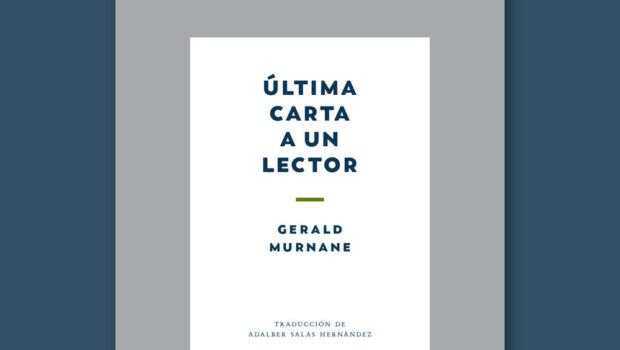Obvious Child: A Film About Abortion
Hipatia Argüero Mendoza
When I read about Obvious Child (2014), the first feature film by Gillian Robespierre, I was ecstatic. I couldn’t wait to watch Jenny Slate playing Donna Stern, an almost thirty-year-old stand-up comedian wannabe, boldly making awkward, unplanned pregnancy jokes before a shocked audience. The movie’s selling point is, for a lack of a better word, obvious: it is a rom-com about abortion. In many ways, it is something that has been done over and over and never before at the same time. Genius.
Films about abortion are usually somber—quite the understatement—, they are the kind of films that make you want to crawl out of your skin, take a bleach shower and stare into space for a while. They depict harsh realities that are, coincidentally, very dramatic. Among countless examples three come to mind: the Romanian 4 Months, 3 Weeks and 2 Days (Cristian Mungiu, 2007); Mike Leigh’s Vera Drake (2004); and The Crime of Father Amaro (Carlos Carrera, 2002). Seemingly, these widely regarded and awarded films have little in common, except—of course—in that they feature abortions. However, are they about abortion? More specifically, are they about the women who get abortions? No. They are about people who either practice, enforce or witness abortions. The main characters in these cases are not the ones who choose or experience an unwanted pregnancy. These films have had a significant impact on the audience; they were screened at festivals, received important awards and, thanks to the Mexican Catholic Church’s lack of vision on how attempted censure works, broke box-office records. The women characters in these films are traumatized, risk going to prison, or die. Not exactly a positive take on the issue.
The other characteristic they share is that they are time-and-place-specific: Mike Leigh’s film, which portrays 1950’s Britain, and Mungiu’s film, with a 1980’s Romanian setting, both fall in context of illegal abortions. Now, these countries protect women who choose to interrupt their pregnancies. Carrera’s film, on the other hand, is set in a small conservative town in Mexico that represents all small conservative towns in Mexico. Although the truth is that unsafe abortions are an every-day occurrence in Mexico, a lot has been achieved for women’s rights and the right to choose, a fight that has only been exposed in documentaries. So, how about here and now? Obvious Child has started to fill this void.
 When I saw that Obvious Child would be screened at Sundance, I was both surprised and delighted. Finally, a film that is not tragic and painful, but actually funny and light. The situation (abortion-wise) outlined in Robespierre’s film is not a common one; it is the result of life-long struggles. Being able to go to a clinic and, like Slate’s character, order an abortion as if it were fast food, no judgment, no explanations, is something that very few women are able to experience. However it does exist. Even in Mexico.
When I saw that Obvious Child would be screened at Sundance, I was both surprised and delighted. Finally, a film that is not tragic and painful, but actually funny and light. The situation (abortion-wise) outlined in Robespierre’s film is not a common one; it is the result of life-long struggles. Being able to go to a clinic and, like Slate’s character, order an abortion as if it were fast food, no judgment, no explanations, is something that very few women are able to experience. However it does exist. Even in Mexico.
Of course, with such high expectations, it’s very hard not to be disappointed. But you can’t believe one movie will change everything, not immediately at least.
Donna Stern is a fart-noise-making, witty and self-ridiculing type of woman. She is messy and frequently makes bad decisions. She’s almost thirty and her life hasn’t taken off yet. At the beginning of the film everything falls apart. Her boyfriend dumps her for her best friend (really?) and she loses her day job, leaving her broke and broken hearted at the same time. Worst of all, she is unable to make people laugh on stage while complaining to the audience about her recent downfall. In this context of sheer bad luck, bad relationships, and unprofessional behavior, Donna drowns her sorrows in alcohol and sleeps with a random but very charming and good-looking stranger (Jake Lacy). A few weeks after her night of drunken sex, Donna —still a mess, still not very funny— realizes she’s pregnant. She immediately decides she wants an abortion and goes to get it. No second thoughts, no moral dilemma. In the clinic they tell her she must wait before the procedure can be performed and that she has to pay a whole month’s rent to do so. During the waiting period Donna decides she needs to tell the very charming and good-looking guy that she is aborting his baby, especially since he insists on courting her despite her attempts to push him away. The very charming guy is still very charming and continues to be very charming throughout the movie, smiling in most situations.
 Donna Stern speaks her mind without caring what others may think or, as her friend Nellie (Gaby Hoffmann) says during the film, “she is unapologetically herself”. Sadly, her mind is mostly full of diarrhea jokes and dirty underwear. Donna is, in short, Jenny Slate. Toilet humor has a purpose; it would be useless to say something against it. However, when it doesn’t evolve to something more, it’s simply not enough to sustain a comedy.
Donna Stern speaks her mind without caring what others may think or, as her friend Nellie (Gaby Hoffmann) says during the film, “she is unapologetically herself”. Sadly, her mind is mostly full of diarrhea jokes and dirty underwear. Donna is, in short, Jenny Slate. Toilet humor has a purpose; it would be useless to say something against it. However, when it doesn’t evolve to something more, it’s simply not enough to sustain a comedy.
Obvious Child is not a great comedy. Its humor is repetitive and the two main characters are only interesting in terms of the specific situation they face (the abortion). They remain the same from beginning to end, only happier that they found each other. As a romantic comedy the film works mostly by the book: meet-cute, hesitation, expectations, misunderstanding, forgiveness and love. It has it all and not particularly different from most films in this category. Except for the female supporting characters, Nellie the friend and Donna’s mother (Polly Draper), which are truly great despite having very little screen time, this movie has little to offer in terms of breaking the mold.
I’ve read several articles that state that Obvious Child is not [only or mainly] a film about abortion, but about a woman who goes through an abortion as part of her very hectic and complex life. Even though the abortion is mentioned more than half an hour into the film, the fact remains that, if it were not for the fresh approach to a controversial subject, the movie would be plain and really not very funny.
There are brilliant moments that make the film worth watching: a dinner party where Nellie talks about her own abortion while the already pregnant Donna listens and sips wine; the brief moment in which Donna’s mother lets go of her perfect self and opens up with her daughter; the actual procedure portrayed as the non-invasive intervention it is: all truthful moments that are not tainted by a comedic intention.
Obvious Child portrays a new reality. Abortion is a real option for women, perhaps not always affordable, but certainly not deadly or necessarily traumatic. It is not the single most defining moment of a woman’s life and, frankly, it’s nobody’s business. Obvious Child makes all this very clear. And I think we should thank it for that.
 Hipatia Argüero Mendoza (Mexico City, 1988) studied English Literature and Screenwriting. She is the editor of the film section of Cuadrivio Magazine. She likes cats. You can follow her at @MeLlamoHipatia.
Hipatia Argüero Mendoza (Mexico City, 1988) studied English Literature and Screenwriting. She is the editor of the film section of Cuadrivio Magazine. She likes cats. You can follow her at @MeLlamoHipatia.
Posted: August 26, 2014 at 11:21 pm











This film is funny and heartwarming and a new favorite of mine. The characters are relatable, the story is funny and captivating, the actors are truly remarkable, and the setting is amazing – New York. This film is unique in it’s voice, but something we can all recognize. It has the feel of Man Up, but with a different age demographic and location. It’s quirky, fun, touching, a hidden treat…